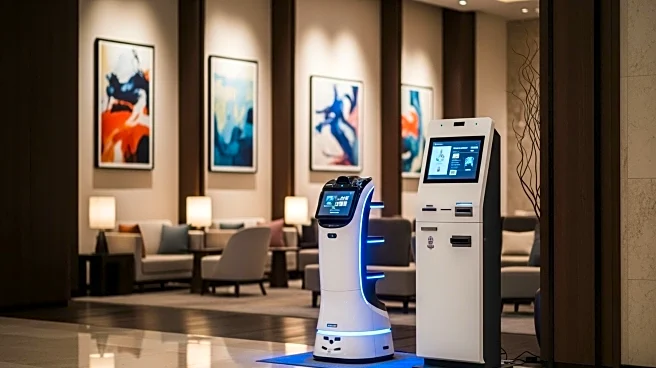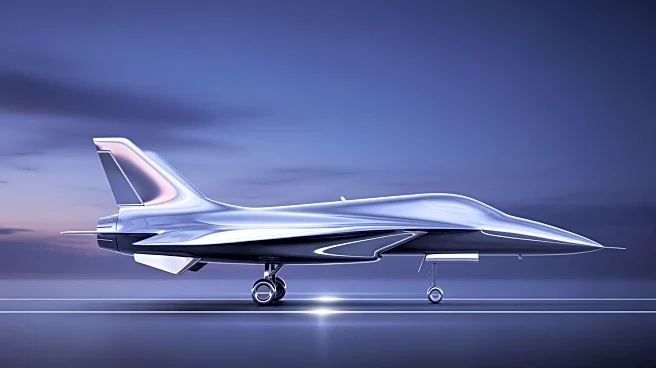What is the story about?
What's Happening?
The hospitality industry is undergoing significant transformation driven by digital advancements and the demand for personalized guest experiences. A recent report highlights the role of AI-powered personalization in shifting hotels from reactive to predictive service models, enhancing guest journeys. The report, sponsored by Sojern, Hospitality Solutions, and Duetto, explores how AI is scaling engagement, reducing guest service calls by 65%, and boosting satisfaction. Additionally, AI copilots and coding agents are contributing to productivity gains of 30 to 50% across hotel tech teams. The industry is also witnessing a shift from traditional room bookings to retail, with personalized packages and new revenue streams. SEO and discovery processes are evolving as AI changes how travelers search, plan, and book vacations.
Why It's Important?
The integration of AI in the hospitality sector is crucial for maintaining competitiveness and meeting evolving consumer expectations. By leveraging AI, hotels can offer more personalized and efficient services, potentially increasing customer satisfaction and loyalty. The shift towards AI-driven operations can lead to cost savings and improved resource management, benefiting both businesses and consumers. As AI alters traditional booking and planning processes, hotels must adapt to new strategies to optimize commercial outcomes. This transformation could redefine industry standards, influencing how hospitality services are delivered and experienced.
What's Next?
The continued adoption of AI technologies in hospitality is likely to drive further innovation in guest services and operational strategies. Hotels may increasingly focus on developing modular and scalable architectures to support AI integration. Empowering teams through digital fluency will be essential to maximize the benefits of AI. As AI continues to evolve, the industry may see new business models and revenue streams emerge, requiring ongoing adaptation and strategic planning. Stakeholders, including technology providers and hospitality leaders, will need to collaborate to ensure successful implementation and maximize the potential of AI.
Beyond the Headlines
The ethical implications of AI in hospitality, such as data privacy and the balance between automation and human interaction, are important considerations. As AI takes on more complex decision-making roles, the industry must address potential biases and ensure transparency in AI-driven processes. The cultural shift towards technology-driven experiences may also impact traditional hospitality values, requiring careful management to preserve the human element in guest interactions.















